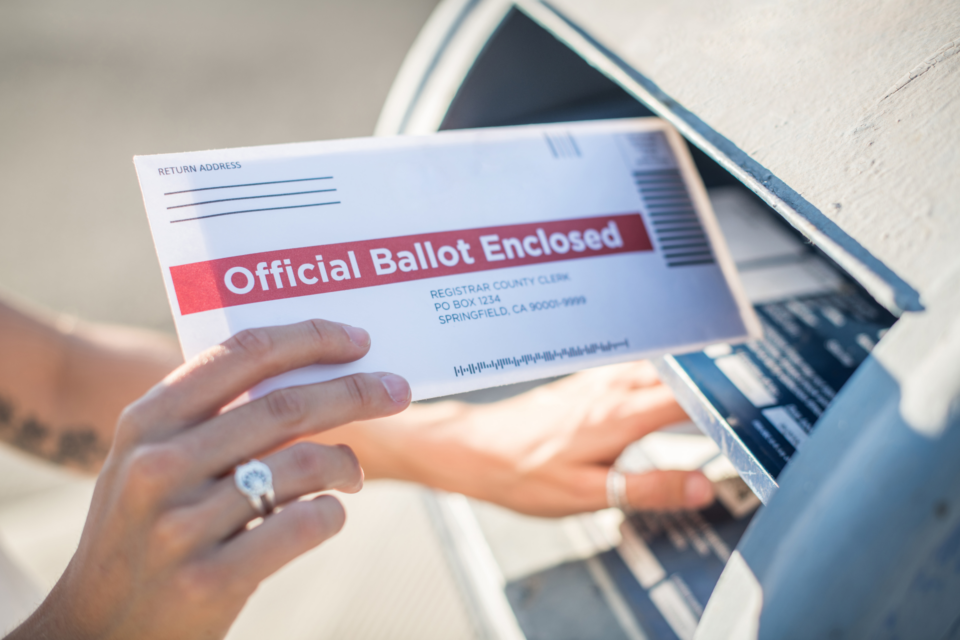In this op-ed, Rev. John Boley encourages us to vote, as this right directly results from our Christian faith, which affirms the sacred worth of every human being.
REV. JOHN BOLEY
Retired Pastor, Michigan Conference
The first election I could vote in was the 1972 presidential election. I had just turned 18 and was happy to be able to go to the ballot box. I voted for George McGovern, mainly as a protest vote against the War in Vietnam. Even though McGovern lost in a near landside, I did not view my vote as meaningless. The pressure on President Richard Nixon to end the war was immense, and my vote was part of a groundswell that eventually ended that horrible war.
We hear a lot right now about the right to vote. One group wants to suppress the right to vote for some other people, while another group wants to ensure the right to vote for everyone. I can’t believe we’re having this discussion at all — to me, it should be obvious that everyone should have voting rights.
But where does the right to vote come from? Jesus never talked about voting, which is not really found in the New Testament. If there was voting anywhere, it was about casting lots — meaning that God controlled the outcome — such as the election of the new disciple, Matthias, to replace Judas (see Acts 1:12-26).
Voting has not existed in most of history. Many tribal societies had traditional methods of organizing power through “democratic” choices, but many did not. Ancient Greece institutionalized some forms of voting, as did a few others in the Greco-Roman world.
However, voting was not part of most monarchies or other authoritarian societies. As voting grew after the Middle Ages, it was only available to privileged people — men and landowners. Indeed, gender, wealth, and status have long been the determining factors allowing people to vote, including here in the United States.
But at the same time, there has been a steady stream of increased voting rights in most societies. In the United States, the Thirteenth, Fourteenth, and Fifteenth Amendments extended voting rights to African American men after the Civil War. The Nineteenth Amendment in 1920 gave women the right to vote. The Voting Rights Act of 1965 extended voting rights among people of color on a national basis in response to Jim Crow. In 1971, voting was broadened to 18-year-olds in response to the War in Vietnam and the ambiguities of the draft. As we can see, the right to vote is still dynamic, with the juggling of either extending or denying voting access. (Incidentally, the stripping of many provisions from the Voting Rights Act of 1965 by our U.S. Supreme Court was and is gross negligence, in my humble opinion.)
For many, this slow increase in voting rights from the dawn of civilization to now is beyond comprehension. Why so long? Why so much discrimination? Why so much hatred and mistrust of the “other.” Is this the best we can do?
On the other hand, progress for human rights has always been slow and steady, with many ups and downs. This could be indicative of increasing human understanding of the sacred worth of all human beings, something that does not come naturally in the wake of the human condition. Still, as Martin Luther King, Jr., reminded us, “The arc of the moral universe is long, but it bends toward justice.” And as Wesleyans, we understand the lengthy process of sanctification, both personally and socially, and moving on to perfection in love in this lifetime.
We vote because we live in a democracy, for which we are grateful. But even more, we vote because it recognizes the sacred worth of individuals. It is is a direct result of Christian faith. Yes, we wish progress could be faster, but make no mistake: Without the pervading presence of Jesus Christ as the champion of human dignity, compassion, and empathy, there would be very little voting at all.
This upcoming election is indeed as important an election as ever. We say that every four years, but it is seriously true again this year. Please register to vote if you still need to, and please assist others in registering if you can. October 21 is the last day in Michigan to register to vote online or by postmarked mail. Click to register to vote. And then, please vote. It is the great privilege of our democracy, and your vote makes a difference, just as mine did in 1972.
And when you go to the ballot box, don’t just be grateful for American civil liberties, but always remember that it is the Christian virtue of affirming the sacred worth of individual human beings which makes this vote even possible.
Last Updated on October 9, 2024

